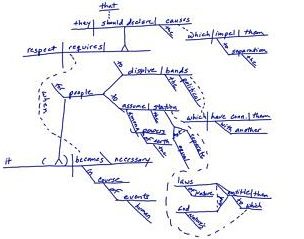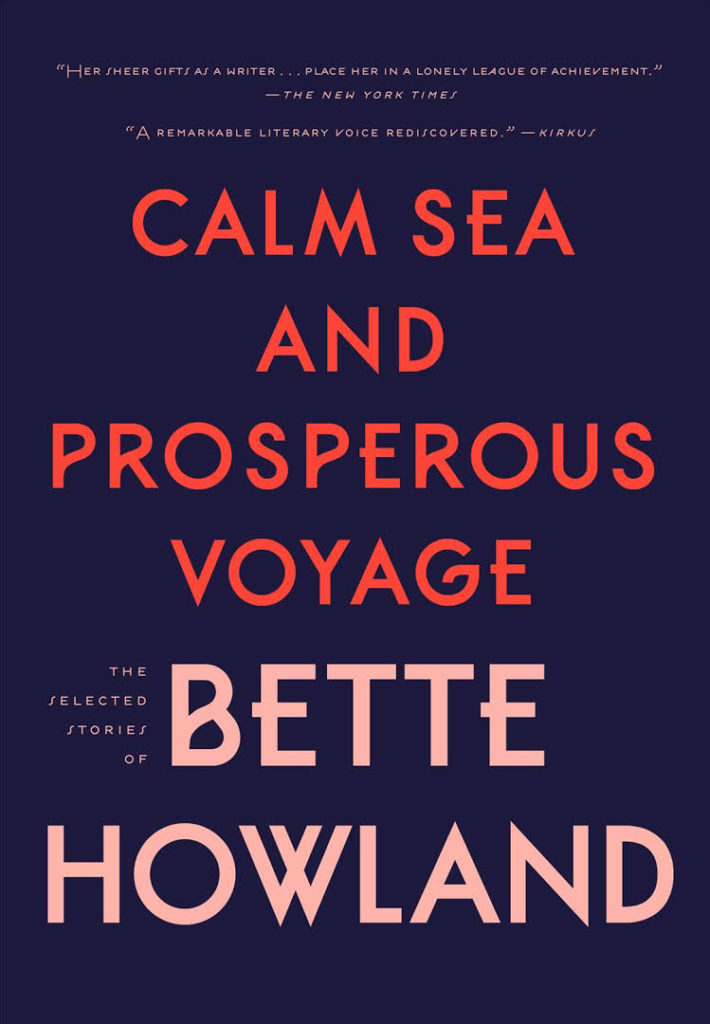I’ve been rereading Edith Wharton’s The House of Mirth, my favorite of her books. As it opens, lovely, graceful, and without money of her own, Lily Barth needs to find a husband. She’s already 29, old for the job. But it’s hard for her. She attaches herself to Percy Gryce, a rich, eligible bachelor and draws him out on his favorite books, but he is so boring that just thinking about him later brings his droning voice clearly to mind, and she imagines the work of getting him to propose, summed up in this sentence.
“She had been bored all the afternoon by Percy Gryce–the mere thought seemed to raise an echo of his droning voice–but she could not ignore him on the morrow, she must follow up her success, must submit to more boredom, must be ready with fresh compliances and adaptabilities, and all on the bare chance that he might ultimately decide to do her the honor of boring her for life.”
Funny, but ultimately tragic for Lily, who can never quite bring herself to this wholly mercenary level. A wonderful read to finish up the summer.
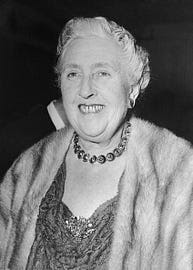 lovely photo of Agatha Christie, whose work has given me a lot of pleasure. She was born in 1890. From the detailed article about her, I selected this to share with you:
lovely photo of Agatha Christie, whose work has given me a lot of pleasure. She was born in 1890. From the detailed article about her, I selected this to share with you: If you are looking for a bon bon of a book, The Enchanted April is delectable. Not overwhelmingly sweet, amusing, light, but well-enough written that it’s not a guilty pleasure. I especially enjoyed this paragraph, the musings of a woman who has long been ignored by her husband:
If you are looking for a bon bon of a book, The Enchanted April is delectable. Not overwhelmingly sweet, amusing, light, but well-enough written that it’s not a guilty pleasure. I especially enjoyed this paragraph, the musings of a woman who has long been ignored by her husband: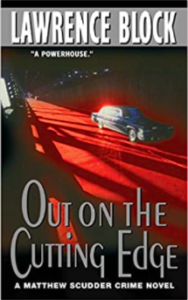 Thanks to
Thanks to 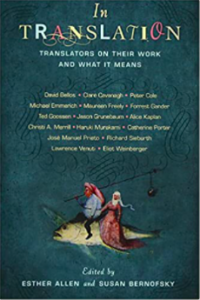 In another vein entirely, but equally pleasurable, here’s a quote from Eliot Weinberger from his essay in
In another vein entirely, but equally pleasurable, here’s a quote from Eliot Weinberger from his essay in 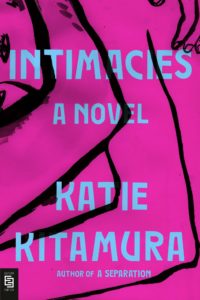 “It is never easy to move to a new country, but in truth I was happy to be away from New York. That city had become disorienting to me, after my father’s death and my mother’s sudden retreat to Singapore. For the first time, I understood how much my parents had anchored me to this place none of us were from. It was my father’s long illness that had kept me there, and with its unhappy resolution I was suddenly free to go. I applied for the position of staff interpreter at the Court on impulse, but once I had accepted the job and moved to the Hague, I realized that I had no intention of returning to New York, I no longer knew how to be at home there.”
“It is never easy to move to a new country, but in truth I was happy to be away from New York. That city had become disorienting to me, after my father’s death and my mother’s sudden retreat to Singapore. For the first time, I understood how much my parents had anchored me to this place none of us were from. It was my father’s long illness that had kept me there, and with its unhappy resolution I was suddenly free to go. I applied for the position of staff interpreter at the Court on impulse, but once I had accepted the job and moved to the Hague, I realized that I had no intention of returning to New York, I no longer knew how to be at home there.”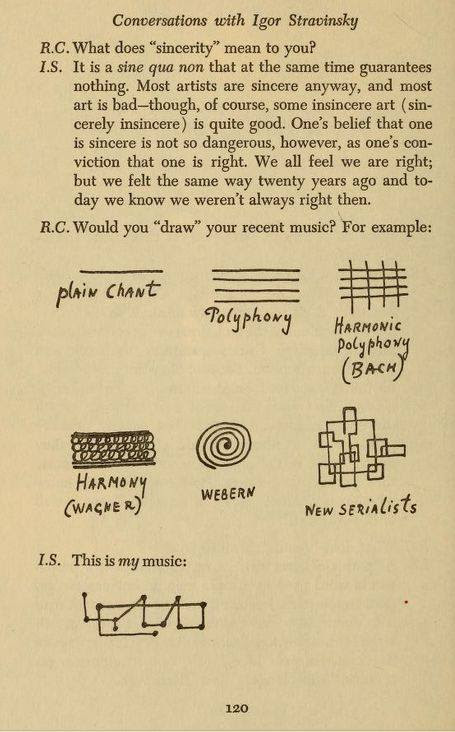
 It’s been a long time since I’ve posted an exemplary sentence, but The Transit of Venus, by Shirley Hazzard, is full of them. Very arch, and often funny. I’m only about half-way through, but here are a few:
It’s been a long time since I’ve posted an exemplary sentence, but The Transit of Venus, by Shirley Hazzard, is full of them. Very arch, and often funny. I’m only about half-way through, but here are a few: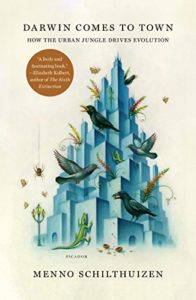 I just finished this book, Darwin Comes to Town by Menno Shilthuizen, about adaptation and evolution in urban environments, which seemed somewhat hopeful. It’s a discussion about how quickly certain species change to thrive in cities. Stories include the hawksbeard dandelion, which evolved to produce heavier seeds so their little parachutes would keep them in the island of green instead of floating off onto asphalt and how crows learn to throw heavy-shelled walnuts into intersections, wait for cars to run over them and then when the light changes, run out to grab the walnut meat after the cars crush the shells.
I just finished this book, Darwin Comes to Town by Menno Shilthuizen, about adaptation and evolution in urban environments, which seemed somewhat hopeful. It’s a discussion about how quickly certain species change to thrive in cities. Stories include the hawksbeard dandelion, which evolved to produce heavier seeds so their little parachutes would keep them in the island of green instead of floating off onto asphalt and how crows learn to throw heavy-shelled walnuts into intersections, wait for cars to run over them and then when the light changes, run out to grab the walnut meat after the cars crush the shells.